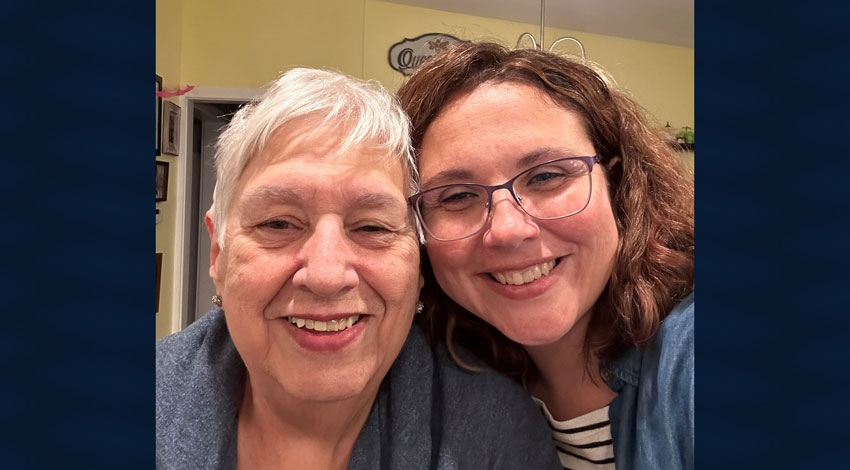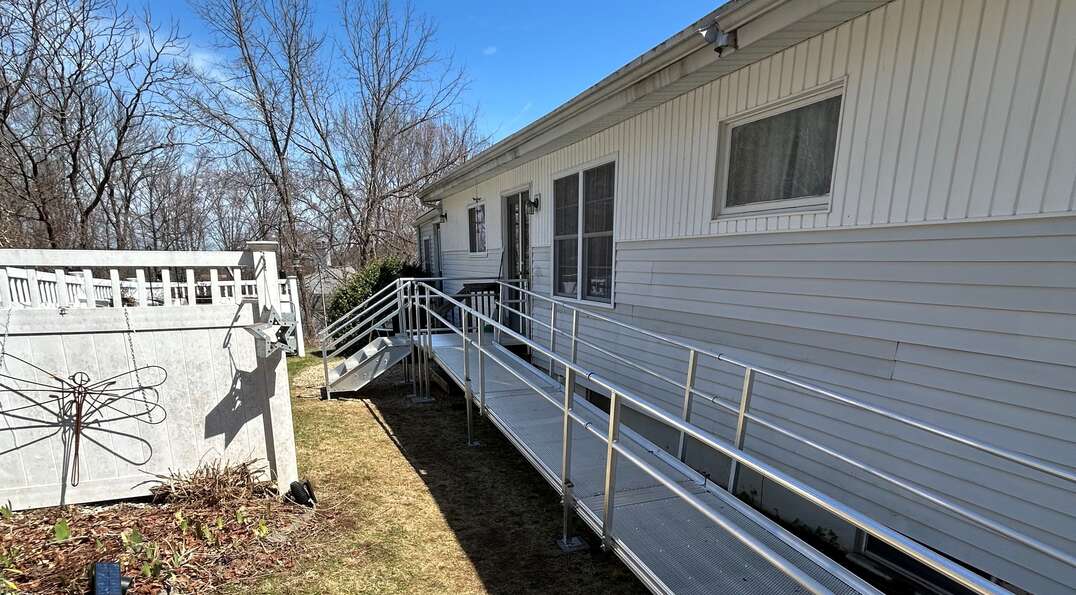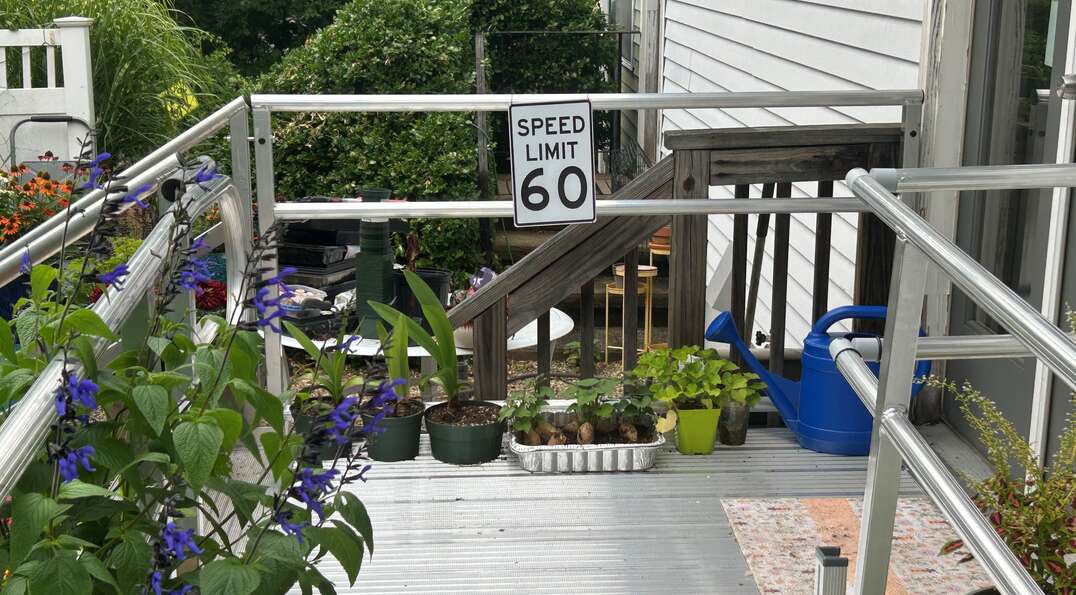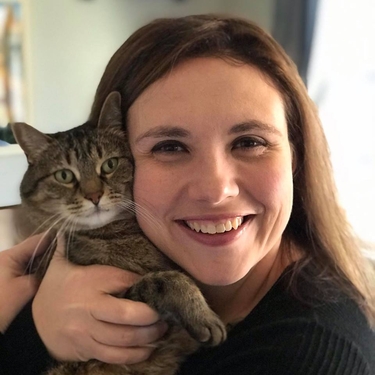A Caregiving Conversation: An Interview With My Mother | Road Scholar
- This heartfelt interview between a daughter and her mother explores the practical and emotional journey of moving in together, highlighting how their relationship evolves as the mother transitions from caregiver to being cared for.
- The conversation underscores the life-changing impact of simple home modifications, like ramps and a shower chair, in ensuring safety, comfort, and a sense of independence for an aging parent.
- Ultimately, the most important advice shared is the need for mutual patience and the simple act of listening, which are paramount in navigating the complexities of a loving caregiving dynamic.

I have a confession to make — I’m not always easy to live with.
My husband has certainly gotten used to it after 20 years of marriage, but my mum was reintroduced to living with me last year after my dad passed away. During this time, we’ve re-learned a lot about each other. We’ve made modifications to our home so that it’s easier for her to navigate. And we’ve made new routines that have become our new normal.
I recently sat down with her to talk about living with us, home modifications, caregiving and the importance of patience. I hope you’ll enjoy this look into our new way of life and some of the challenges we’ve encountered along the way.
Erika: Hi Mum — thanks for doing this!
Meredith (Mum): Of course.
E: You and I have talked a lot about patience, in terms of caregiving — patience needed by the caregiver, and by the person being cared for. Can you talk more about what patience means to you in terms of our dynamic?
M: I know when to leave you alone, when to give you time to get away and take a walk. We have to have time away from each other. For a caregiver, you only have so much time in a day to take care of someone, especially if you work. You’ve got to get stuff done. But what you are doing may not be what the patient needs to have done. Or you feel that, “If you did it my way, it would be better.” But the patient’s way is better for them.
E: Can you think of an example? Maybe like laundry or something like that.
M: Yeah, I can’t go downstairs to do laundry. But I can fold laundry. And then I can’t reach to put it on the shelf. I have to ask for help.
E: And then, sometimes I come right in and do it, and sometimes I don’t.
M: Right, but that depends on your schedule and if you have time to do it.
E: Do you get aggravated if your laundry isn’t put away right away?
M: No, I just put it over there in the corner. I’m flexible. (laughs)
E: What was it like moving in here at first?
M: I didn’t feel like I was a visitor. I felt as if I was coming home. Now, if I had to go somewhere else after this, that would be different. But coming here was like a natural progression. Your father died, I came here. There was no way I could go back to our apartment. So for me it wasn’t traumatic or anything. I think if I’d had to go live with my niece or someone else, that would have been difficult.
E: And what is it like now?
M: It’s home.

The ramp outside of the home.
E: And what is it like living with your son-in-law? You lived with me before, but what is it like living with him?
M: Much better than I expected. He’s kind. I think he may get tired of me now and then, but he’s kind and he thinks of me. He thinks of things like, if he went to a store or something, he’d think, “Oh, my mother-in-law would like that.” Most men wouldn’t do that, or sons-in-law wouldn’t do that. I’m one of the lucky ones.
E: What are some things that we’ve had to do to make our space more livable for you or more comfortable for you?
M: You let me move in more furniture than you wanted me to. (laughs) The outside ramp certainly changed my life. Before that, I had to get up three stairs and it was traumatic — I never knew if I would fall or if I could make it up and if my right leg would work. I have everything I need.
E: So we’ve gotten chairs that adapt to you more. And a bed.
M: Yes, and the ramps here in my room. (Note: From her room, there is a small step to get into the kitchen, and another small step to get into the bathroom. We found small interior ramps online that work well for Mum and her rollator.)
E: And a shower chair. Would you say the outside ramp has been the most beneficial thing we have done?
M: Yes.
E: And that was a very easy process.
M: I guess to heck it was! Everyone should have a service like that. And when you no longer need it, they will buy it back and someone else can have it. It won’t go to the dump. (Our outdoor ramp was installed in less than three hours by some of the most polite handymen we’ve ever encountered.)
We were talking about patience before and a person wanting things done one way and the caretaker doing it another way. I make a bed the way my mother taught me. And it’s not necessarily the way you would do it. But it doesn’t matter in the end. As long as the bed is made, that’s what matters. That’s just an example. You can’t put too much emphasis on little things — those are the things that can get out of control if you let them.
E: It’s almost like you have to have a spirit of adventure.
M: Yes. You have to be willing to try something new.
E: Something we are always very conscientious about is falling, and making sure our house is adapted to you because falling is so traumatic.
M: Yes, I might not get hurt, but there is a trauma. And it scares the hell out of your husband. (laughs) I know it does.

E: Well, you often do get bruised or banged up or pull something.
M: I haven’t fallen for a long time, but when I did before, it was from vertigo. Now I’m just afraid of it. Even if I go into the bathroom, I make sure I have my necklace (Life Alert Button) and my phone with me just in case I need you.
E: What do you think about the alert button? I know at first you weren’t excited about that, or you were afraid you would hit the button all the time.
M: That’s still a fear. But it’s not a big deal. They call and you tell them you’re all right. And that’s why they are there.
E: You are no longer driving.
M: I can, but I don’t want to.
E: You made a decision that you’re not comfortable driving.
M: I’m not comfortable. People go so fast. It’s not so much driving as other drivers. Everybody’s going too fast.
E: But if there’s anywhere you want to go, I take you.
M: Oh yeah. I don’t want to go anywhere really. But if you’re going and ask if I want to go, that’s great. I’ve always been a homebody. When I go out for an extended period of time, I always want to go back home.
E: Do you feel like that’s something people struggle with as they get older? Driving and independence, just getting up and going wherever they want to?
M: There are people who do that and they shouldn’t be driving. They have no business driving. I realize I’m lucky to have you to take me where I want to go.
E: Would you say learning is an important part of your life?
M: Oh yes! I never liked school, but I have always loved to learn. I would have made a good home-schooled kid — my mother would have been a great teacher.
E: How do you keep your mind active every day?
M: I read a lot — my iPad is full of books. Otherwise, I watch T.V. (mostly BBC mysteries), color and talk on the phone sometimes.
E: You were a caregiver for Grammie. How would you compare or contrast that with your experience now, having been in both roles? Both are hard.
M: I think caregiving is the hardest part. Watching my mother die … I wouldn’t want to do that again. I could if I had to for her, but that was the hardest thing. She trusted me.
I don’t like asking for help, but I can if I have to. I can ask you for anything, but if I had another caregiver I would be limited to what I would ask them.
E: You would feel guilty for asking them? Or you’d feel like you were bothering them?
M: Yeah, I’d feel like I’d be bothering them. They could be doing something else.
E: Is there anything you don’t like about living here or our situation? You can be honest. I won’t get mad.
M: I can’t think of anything serious. The food’s good. I get my laundry done. (laughs) I don’t know where else I’d go. I’m comfortable here and dread the thought of ever having to go anywhere else. I’m very comfortable — I hope I’m not too comfortable.
E: We want you to be comfortable!
M: When your father died, it felt like as soon as he was gone from the house, I was right behind him — but going in a different direction. I never could have stayed there. I used to think I could live alone — but I never did. I was with my folks for 23 years and then with your father the rest of those years. Sometimes I’d think it would be nice to have my own place, but I couldn’t do that now.
E: If you could give advice to someone my age — in their 40 somethings or 50 somethings — who are trying to help their parents during this time of life or they’re going to become caregivers, what would you say to them? What do you think is the biggest piece of advice they should know?
M: Listen. Don’t just hear words, but listen. If you don’t understand, ask them what they mean. Don’t just brush them off as old people.
E: Do you think that happens a lot?
M: Yes, because younger people want to get on with their lives. They have their own homes, their own husbands, their own children, their own jobs and that’s what’s important to them. And their parents were part of their lives — an important part — and now they still love them, but they don’t have the time or patience. Patience is paramount. Listen.
E: Thank you, Mum, for this interview.
M: You’re welcome. I hope you don’t post a photo of me online. (laughs)

Erika Bouchard has been a writer and creative thinker at Road Scholar for more than 17 years. She lives in Massachusetts with her husband, mother and an incredibly spoiled tabby cat. When she’s not writing, you can find her somewhere in her gardens.


